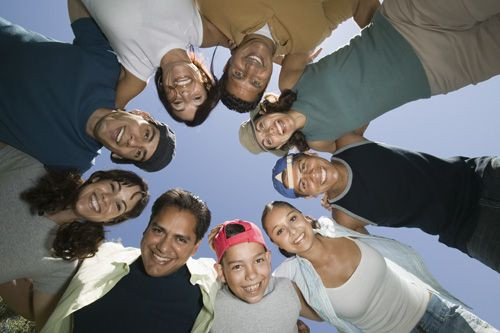How To Make New Friends: Avoid Weight Loss Groups, For One

Why wouldn’t you want a support group, especially if you were trying to lose weight and had never been very good at it? Imagine: A crowd of like-minded people, all cheering you on, empowering you with all their high fives and ‘you go, girl’ attitudes. Unfortunately, it’s not exactly like that, say an international team of researchers. Members of weight loss groups may begin with warm support but they end with cold secretiveness, according to a study appearing in the Journal of Consumer Research.
“When consumers start working toward a goal, they often feel uncertain about how to achieve the goal and see others at a similar stage as friends,” wrote the researchers in a press release. “They pass on helpful tips and cheer each other on.” Yet, once a formerly elusive goal comes into sight, things subtly begin to shift. Feeling sure of themselves, people no longer believe they need help from anyone else. I can do this on my own, they think.
“They become distant and keep useful information to themselves,” note the researchers. (How fickle the human heart!)
In a series of studies, the researchers focused on a Weight Watchers group. They analyzed group meetings, observed dynamics among the members, and interviewed the participants. In the early stages of their weight loss, all of the dieters said they felt close to and willing to help the other members. “Companionship,” they told the researchers, mattered to them. However, by the time they reached an advanced stage of weight loss, less than half — just 42 percent — said the same. In fact, the vast majority of advanced stage dieters said they felt distant and 79 percent reported they were reluctant to share information with the other members of their group. Earlier, only 44 percent suggested they might be less than willing to share their secrets. “As consumers move from the early stages of pursuing a goal to a more advanced stage, they change from being friendly to decidedly distant,” the authors wrote. Even if they believe they are hurting no one, they ultimately hurt at least one person.
“The more consumers distance themselves from others with similar goals, the more likely they are to feel disengaged and even give up on their goals entirely, ” the authors concluded. They suggest their research can help support groups such as Weight Watchers, Alcoholics Anonymous, or other group programs find ways to keep people engaged and working toward their shared goals.
Source: Huang S, Broniarczyk SM, Zhang Y, Beruchashvili M. From Close to Distant: The Dynamics of Interpersonal Relationships in Shared Goal Pursuit. Journal of Consumer Research. 2015.
Published by Medicaldaily.com



























